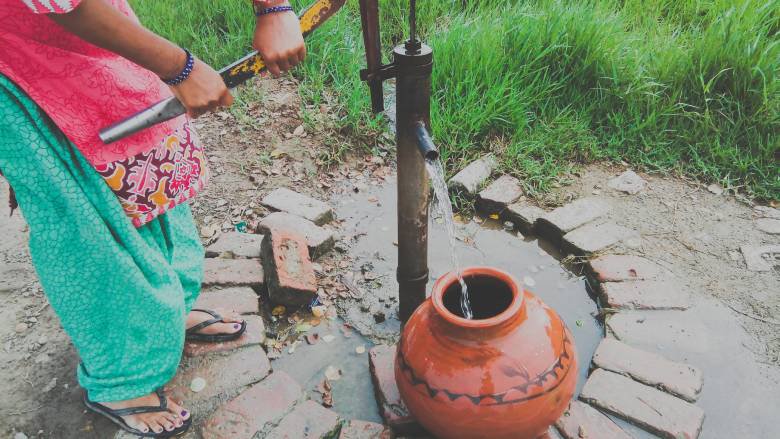Groundwater anchors water and food security in many regions, providing nearly half the volume of all water withdrawn for domestic use and about 43 percent of water use for irrigation. But as a common-pool resource with open access, groundwater has historically been undervalued, overexploited, and mismanaged.
As "nature’s insurance," groundwater serves to protect food security, reduce poverty, and boost resilient economic growth. Easily accessible aquifers provide buffering for economies and, in the event of drought, can reduce global economic growth losses by up to a third and can protect cities against day-zero-type events. These resources also play a critical role in adapting to climate change by sustaining a broad range of dependent ecosystems and providing fresh water when surface water resources are scarce. Without the natural buffer of groundwater, households could suffer almost twice the loss in agricultural productivity. By insulating farms and incomes from climatic shocks, the insurance of groundwater translates into protection against malnutrition. As groundwater becomes depleted, however, the resilience it provides is at risk. Without action, the world will become more vulnerable to climate shocks.
Some regions where groundwater is most needed have yet to tap its potential, while others are overexploiting the resource, with a disproportionate impact on vulnerable households. In the Middle East, South Asia, and Central Asia, for example, more than 80 percent of large cities rely on groundwater as their main source. By transitioning to a broader diversification of their water source portfolio, including enhanced water storage and managed demand, these regions can sustainably protect groundwater resources. In contrast, many countries in Sub-Saharan Africa have underused groundwater. Valuing the resource can leverage its buffering potential for farmer-led irrigation while preventing path-dependent maladaptation and mismanagement.
While the range of groundwater use is highly variable across regions, in most cases, groundwater is undervalued—or not valued at all. Depletion, degradation, and competition for groundwater threaten its sustainability, threatening to rob future generations of this resource. High-level political and cross-sectoral action is urgently needed to ensure that the private and social costs of groundwater use are aligned and that this precious resource is properly valued and carefully managed.
Later this year, the World Bank will release The Hidden Wealth of Nations: Groundwater in Times of Climate Change. This report will examine the value of groundwater, the opportunities to leverage its potential, and the costs of mismanaging this resource.
